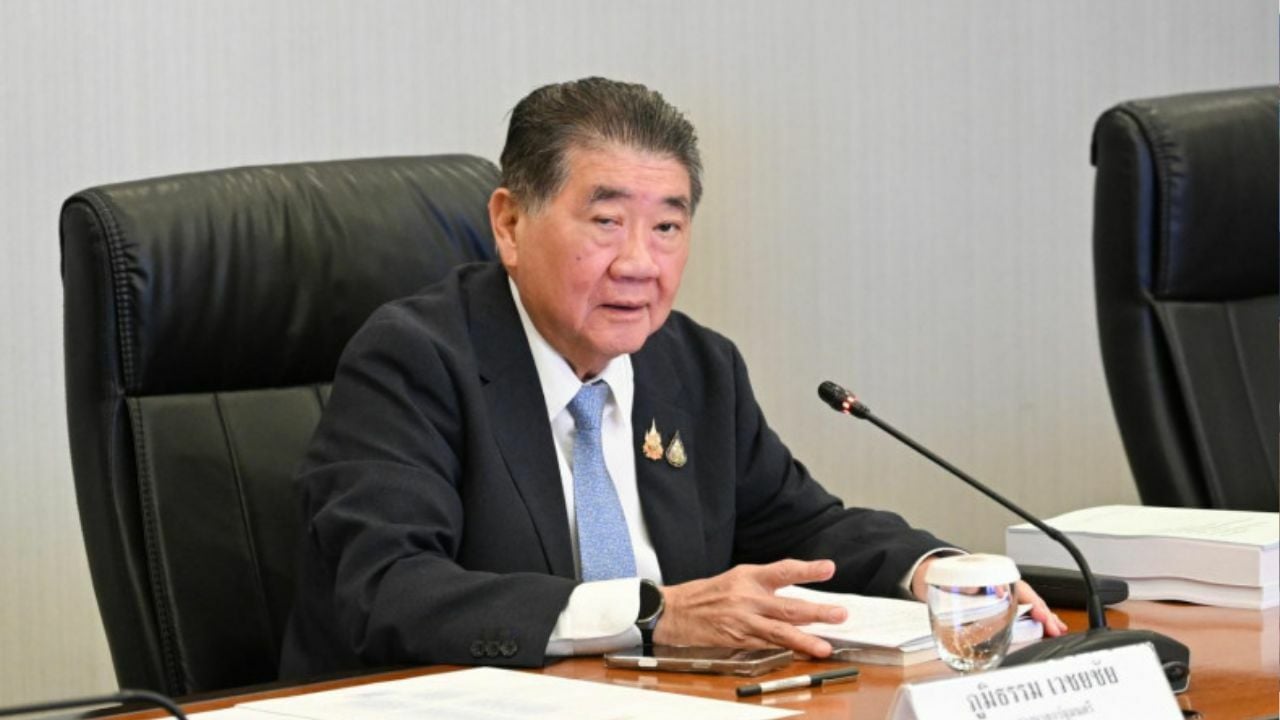Thailand prioritises peace in Cambodia border dispute
Calls grow to resolve conflict without escalating military presence

War should remain a last resort in Thailand’s ongoing border dispute with Cambodia, according to Deputy Prime Minister Phumtham Wechayachai. Speaking yesterday, June 3, he emphasised the country’s commitment to resolving the issue peacefully, highlighting the need to avoid violence while protecting national sovereignty.
Phumtham, who also holds the position of defence minister, made these comments as Cambodia continues its efforts to bring the border issue before the International Court of Justice (ICJ). Meanwhile, Thailand is keen to advance negotiations through the Thai-Cambodian Joint Boundary Committee (JBC).
“The use of force or war will only be considered as a last resort and only after all other avenues to resolve the crisis have failed.”
Phumtham added that negotiations under the 2000 Memorandum of Understanding (MoU) and through the JBC mechanism are in their early stages.
The Royal Thai Army, Ministry of Defence, and Ministry of Foreign Affairs are working closely to find a peaceful solution, though they remain ready to defend Thailand’s sovereignty if required. Phumtham assured that the military is well-prepared with no deficiencies.
Currently, there are no official orders to close any border crossings, and Phumtham dismissed rumours of a rift between the government and the army over potential border closures due to heightened tensions. Although no troops have been deployed at checkpoints, he noted that preparations are in place.
Border dispute
Phumtham explained that any border closure would require consensus among the army, the Ministry of Defence, and the Ministry of Foreign Affairs.
“Even though these parties may have differing views, escalation cannot proceed arbitrarily.”
If all parties agree that a border closure is necessary, it will be implemented, he added.
Decisions will be made based on national sovereignty and public interest, rather than benefiting any people or group, said Phumtham.
“No one truly desires tensions that escalate to the final stage, war.”
He stressed the importance of considering potential loss of life and suffering and avoiding conflict wherever possible.
Emerald Triangle
Regarding Cambodia’s intention to take the Emerald Triangle dispute to the ICJ, Phumtham stated that negotiations must be based on facts rather than emotions, despite any statements made by either side.
The Emerald Triangle refers to the border area connecting Thailand’s Ubon Ratchathani province, Cambodia’s Preah Vihear province, and Laos’ Champassak province.
In related news, Interior Ministry spokeswoman Traisuree Taisaranakul announced that provinces along the Cambodian border have been instructed to prepare for possible violence.
In Ubon Ratchathani, Governor Adisak Noisuwan met with chiefs from the province’s six border districts on June 2 to discuss evacuation plans in the event of violence. Similar preparations are underway in districts further from the border.
The latest clash between Thai and Cambodian soldiers occurred on May 28 at Chong Bok, a disputed area in Ubon Ratchathani’s Nam Yuen district.
The first incident took place on February 13, when a Cambodian army general led a group of 25 spouses and family members of Cambodian troops to Prasat Ta Muen Thom, an ancient temple on the Thai-Cambodian border in Surin’s Phanom Dong Rak district.
The Cambodians sang their national anthem, suggesting the temple ruins belonged to Cambodia, which was opposed by Thai soldiers stationed there. This led to a General Border Committee meeting on May 1, where Phumtham later ordered Thai troops to withdraw to avoid confrontation, reported Bangkok Post.
Latest Thailand News
Follow The Thaiger on Google News:


























